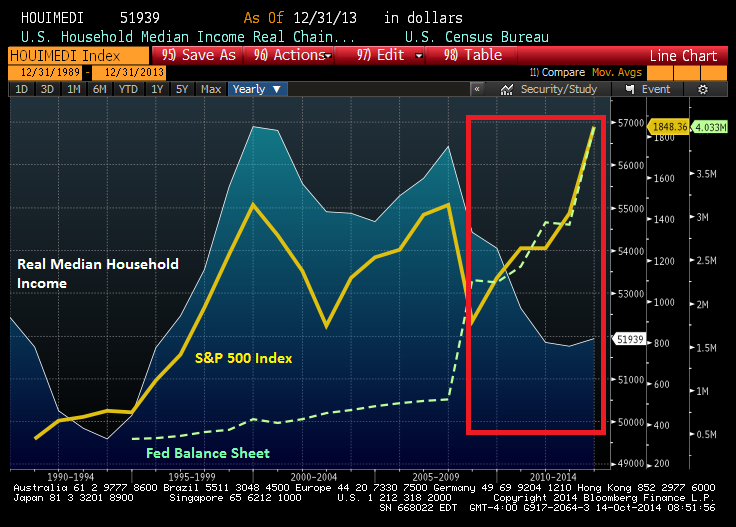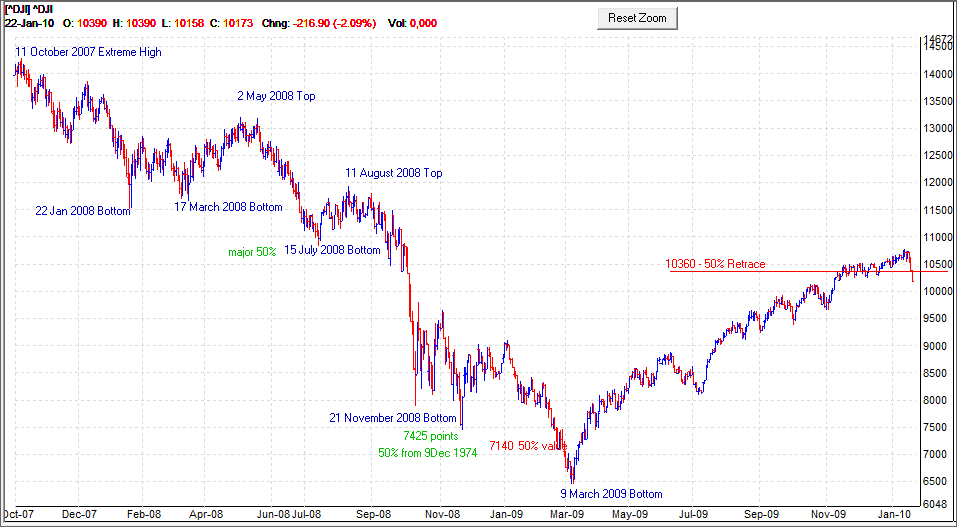What drives the stock market
Post on: 16 Март, 2015 No Comment

What drives the stock market ?
by J Victor on August 3rd, 2010
WHAT DRIVES THE STOCK MARKETS?
Basically, investors respond positively to good news from the government and corporate world and would stay back from the market when they face negative news. From the government’s side, they would expect relaxed monetary polices and interest rates that would enable companies to expand, grow and do business. They would also expect the laws and regulations to be corporate friendly. From the corporates side, investors expect better results and profitability. Over the long term, the growth of the business and profitability is the concern of all investors. Since the current stock prices are nothing but the present value of expected future earnings, we can say that, in the long term, earnings drive stock prices.
WHY EARNINGS?
Investors buy stocks to get to sell it off at higher prices. Stocks will rise in price only if it is in great demand. Demand for a stock rises only if the investors feel that the company has the potential to grow and would increase earnings every year.
The stock market is a discounting mechanism where it’s not the current earnings but, the ability of a company to generate earnings in the future keeps driving it. The present has already been discounted by the market 6 or 12 months ago. So, if investors expect a good season in the future, the stock prices will respond by an increase in price now. Should they expect the reverse, the stock price would tumble. This is a continuing process in the markets – and will be so in the future.
So if you ask us which is the best time to buy stocks, our answer is – it’s when the earnings are declining and when the economy is in recession.
OTHER FACTORS.
Earnings are not the only factor that drives markets. Other factors that drive stock markets include sentiments, valuation, interest rates, inflation and the economic policies in general.
In this, Sentiments has more to do with investor’s psychology. Sentiments represent a collective view of all the participants at a give point of time. The moment there’s a change in stock prices, common investors would assume that it’s going to continue for a long time and would react accordingly. For example – if the stock market responds with a 50 point slide due to increase in interest rates, investor’s negative sentiments may kick off a series of downfalls since, they would keep selling their positions expecting further damage.
Investors will be attracted to the option which appears cheap in valuation. Valuation can be relative valuation or absolute valuation. By relative valuation we mean comparing the stock market to other form of investments like gold or real estate. By absolute valuation we mean, valuating the stock itself with its past price and present and expected performance.

MONETARY POLICIES AND INTEREST RATES
If the interest rates are increased, it affects the borrowing costs of companies and hence, high borrowing cost would bring the earnings down and it will also prompt the companies to post pone their expansion plans. Changes in interest rates will also affect the rate at which future earnings are discounted by the market.
Fixed income earning instruments like fixed deposits become more attractive at high interest rates and that would impact the markets negatively. Investors would move their money from the markets and will park it in fixed instruments since the rate is high.
One major cause of high interest rates is inflation. As inflation in a country increases, the government will be forced to keep the interest rates high in order to restrict the money flow into the economy. As we said earlier, higher interest rates are not good for the stock markets. When the interest rates are low, fixed income instruments are no longer attractive and this would induce investors to enter stock markets.
So the interplay of all these factors keeps driving the stock markets.
You may like these posts:














